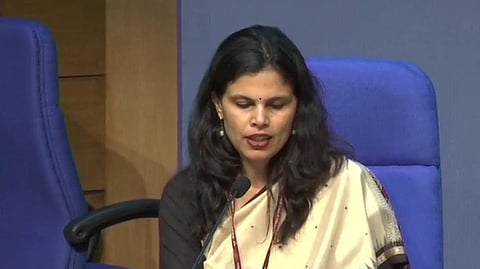

NEW DELHI: The Centre has confirmed that there is no surge in human metapneumovirus (HMPV) cases in India.
Chairing a review meeting with states and union territories, Union Health Secretary Punya Salila Srivastava advised states to intensify surveillance for severe acute respiratory illness (SARI) and influenza-like illness (ILI) to identify any rise in cases of respiratory illness.
The review came even as two new cases were reported from Maharashtra, taking the total number of HMPV cases, which is seeing a surge in China, to seven. On Monday, five cases—two from Karnataka, two from Tamil Nadu, and one from Gujarat—were reported.
In Maharashtra’s Nagpur, blood test samples from two children, aged seven and 13, were found to be positive for HMPV.
In the meeting, Srivastava emphasized that there is no cause for concern regarding HMPV, which has been present globally for decades. She reiterated that an increase in respiratory illnesses is usually observed during the winter months.
She also said that the country is well-prepared for any potential surge in HMPV cases.
During the meeting, it was reiterated that data from the Integrated Disease Surveillance Programme (IDSP) does not indicate any unusual rise in ILI/SARI cases anywhere in the country.
This is also corroborated by the ICMR sentinel surveillance data.
HMPV, a virus that usually causes symptoms similar to a cold, is one of the many respiratory viruses that can cause infections in people of all ages, particularly during the winter and early spring months.
The virus infection is usually mild and self-limiting, with most cases recovering on their own.
In the meeting, it was informed that adequate diagnostic facilities are available at the ICMR-VRDL laboratories.
The states were advised to enhance information, education, and communication (IEC) efforts and raise awareness among the population regarding the prevention of virus transmission. Simple measures include washing hands often with soap and water; avoiding touching the eyes, nose, or mouth with unwashed hands; avoiding close contact with people exhibiting symptoms of the disease; and covering the mouth and nose when coughing and sneezing.